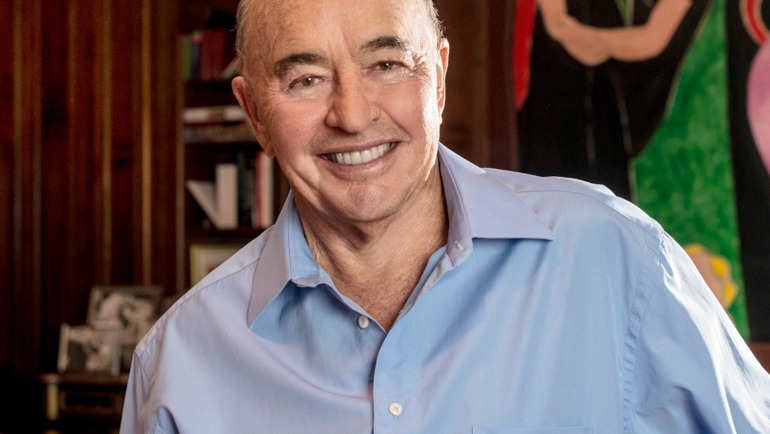Nick Leeson was a beginner trader at England’s Barings Bank in 90′ when he put at risk $1.3 billion of the bank’s money in unauthorized derivatives trades. The Baring Bank collapsed, and Leeson spent four years in a Singapore prison. Nick Leeson’s net worth is $3 million.
Nick Leeson Barings Bank’s – Risky Business
Nick Leeson Barings Bank collapse
The collapse of Barings Bank is, above all, the story of an account. The 88 888 opened in 1992. In the jargon, this is called an error account. “Sometimes someone misunderstands a hand gesture and buys the wrong amount or at the wrong price, (…) or even sells instead of buying,” notes from Nick Leeson’s “Rogue Trader” autobiography, which was transposed into a movie starring Ewan McGregor and Anna Friel. One of his inexperienced assistants, Kim, made such a mistake in July 1992. Nick Leeson then passed the loss of 20,000 pounds to this mysterious account.
Then begins the descent into hell. The trader wants to fill the hole at all costs and forgets the rules of prudence in terms of investment. He takes risks, speculates, and digs deeper into losses over time. Nick Leeson loses all sense of measure and reason. The carousel will thus last almost three years.
“It was Nick Leeson, and it could have been anyone else”
Those were the words of the managing director of Multiplus Finance, François-Marie Monnet, some of whose clients at the time had securities at Barings. The leaders have a priori seen nothing. And even if they had seen it, Nick Leeson was their star trader, the one who contributed significantly to the bank’s profit and, therefore, to their bonuses.
At the end of 1993, he was responsible for around 10% of the results. Barings management places complete trust in him, especially since they do not fully understand how trading and the financial markets work. “Six months before this story, there was a similar case in France,” says a former bank employee. Barings lost 2 million euros and closed the French subsidiary.
The same scenario had occurred in the United States a year earlier. The company was then able to absorb the losses. The group did not learn from its experiences; no action was taken. In Singapore, Nick Leeson manages both the “front desk,” responsible for operations and the back office, liable for daily evaluating commitments. He is both judge and party. The young wolf also benefits from a confused organization. He has to report to different superiors, and the responsibilities of each are not well defined.
Account 88888
In the days that followed, they noted that on July 3, 1992, Nick Leeson had created, on the orders of his London superior, and according to a completely standard procedure, an “error account,” account 88888, but that he did not delete it afterwards despite the request of the same superior. Much worse, this account was registered with SIMEX as a client account at the end of August 1992. Its official owner was Barings Securities London, one of its entities. But any reference to this account, except the daily amount of margin calls.
The illicit activities of Nick Leeson
It was from that moment that Nick Leeson used this account. On the one hand, he engages in long-term speculation and the sale of derivative product options, which makes it possible to bet on the future price.
These are precarious transactions that were prohibited to him. On the other hand, he concealed his losses thanks to his double role. He took part in transactions in the morning as boss of the front office, and in the afternoon, it was as manager from the back office that he charged the losses to account 88888 and the gains to his official accounts! He was also guilty of forgery and the use of forgery.
Deficit control
Several internal checks do nothing. Nick Leeson always manages to hide the losses from inquisitive auditors. He recounts in his book how he managed to get the money he demanded from London, almost every day, to cover his illegal strategy and bail out the 88,888 accounts. His misrepresentations. At the end of 1994, the deficit amounted to 208 million pounds, almost half of the capital of Barings.
To recover, from January 1995, Nick Leeson bet everything.
He bet on a rise in the Nikkei. But, contrary to its forecasts, the earthquake in Kobe (Japan) caused the index to fall: 50 million pounds of losses in one day. Stressed, the trader builds plans and risks bigger and bigger to fill the gap. On February 23, his “black Thursday,” he bought falling securities by the shovel without knowing how to stop before the disaster. Alone, on behalf of Barings, he carries out more than 40% of operations in Singapore. Result: a financial abyss of 720 million pounds, far exceeding the capital of the bank.
Nick Leeson got out of his mandate by “arbitrating” the prices between the Singapore office and the Japanese stock market. He pushed speculation to its extreme without buying reverse contracts to hedge. Frightened by the losses he had caused, Nick Leeson fled with his wife to Malaysia and sent his resignation by fax the next day. The run does not last ten days. The “mad trader” hunt ended at Frankfurt airport on March 2, 1995. He then tried to return to England.
After nine months of incarceration in Germany, he was extradited to Singapore and sentenced to six and a half years in prison. Two charges were brought against him out of eleven at the start: false information is given to the Operations Commission of the Singapore Stock Exchange and fraud, for having obtained from the operator managing this Asian market the reimbursement of 115 million dollars (57 million pounds) for non-existent financial margins.
“This story was a salutary shower of cold water for people who bought anything and everything.”
It was not totally a surprise for many observers, adds Paul Dembinski, director of the Observatory of finance in Geneva. According to him, this bankruptcy has accelerated reflection on the risks induced by financial globalization. Solvency and capital adequacy have entered the language of bankers. As of January 1, 2008, establishments will have to apply the prudential standards defined within the framework of the Basel agreements.
Unable to bail out its losses, Barings declared bankruptcy on February 26, 1995. The Dutch bank ING bought for a symbolic pound this venerable institution, created in 1762, whose ruling family had several hereditary titles of lord and one of the largest real estate fortunes in England. Fortunately for Barings customers, the buyer took on almost all the debts in March of the same year.
















